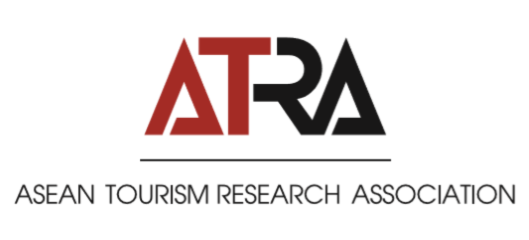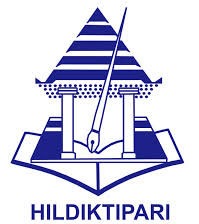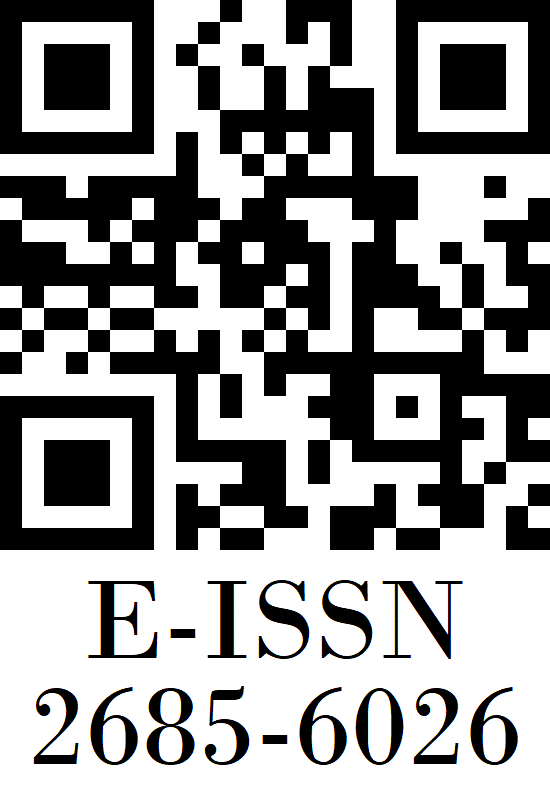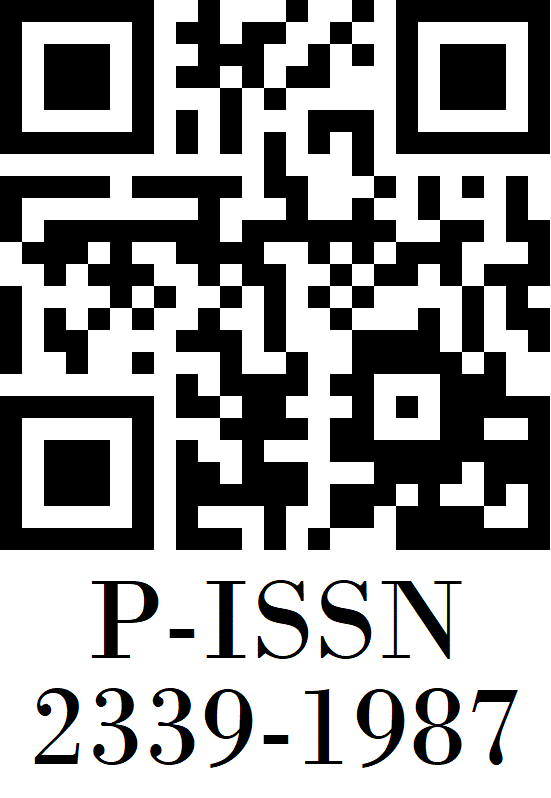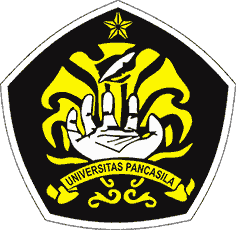PENGARUH MAKANAN TRADISIONAL PADA DRAMA KOREA TERHADAP MOTIVASI BERKUNJUNG WISATAWAN INDONESIA KE KOREA SELATAN
DOI:
https://doi.org/10.35814/tourism.v11i1.4596Keywords:
Food tourism, korean dramas, traditional food, motivation, tourist behaviorAbstract
The increasing number of South Korean cultural enthusiasts suggests that there is a globalization event in which South Korean culture enters Indonesia. One such culture is traditional food. Traditional food also increased the motivation for visiting Indonesian tourists to South Korea. The study focused on the influence of traditional South Korean food on Korean dramas. In this study, researchers examined how much influence traditional South Korean food appears in Korean dramas on the motivation for visiting Indonesian tourists to South Korea. This study was conducted on 57 valid respondents online using quantitative descriptive research methods. The results of this study found that the emergence of traditional South Korean food in Korean dramas affected the motivation for Indonesian tourists to South Korea through attractive and encouraging factors. The results of this study provide an understanding of the motivation of Indonesian tourists to visit South Korea, which is influenced by Korean dramas through the perspective of food tourism. The theoretical implication of this research is to find out that it turns out that soft selling through movies or dramas can attract tourists to try traditional food. This research can be implemented as a suggestion for developing strategies for developing traditional food in general
References
Amerine, M. A., Pangborn, R. M., & Roessler, E. B. (2013). Principles of sensory evaluation of food. Elsevier.
Anggi, A. (N.D.). Strategi Gastrodiplomasi Korea Selatan Untuk Menarik Perhatian Wisatawan Indonesia Ke Korea Selatan (2015-2019) [Diploma Thesis]. Universitas Muhammadiyah Yogyakarta.
Atira, S., & Hasmira, M. H. (2022). Persepsi Mahasiswa Universitas Negeri Padang Tentang Kebudayaan Masyarakat Korea Pasca Menonton Tayangan Drama Korea. Jurnal Perspektif, 5(1), 85. https://doi.org/10.24036/perspektif.v5i1.598
Azizah, N. (2014). Pengaruh penerapan teknologi informasi (e-system) terhadap kepatuhan wajib pajak pada KPP Madya Malang [Undergraduate thesis]. Universitas Islam Negeri Maulana Malik Ibrahim.
Chang, M., Kim, J. H., & Kim, D. (2018). The effect of food tourism behavior on food festival visitor’s revisit intention. Sustainability, 10(10), 3534.
Crompton, J. L. (1979, October). Motivations for pleasure vacation. Annals of Tourism Research, 6(4), 408–424. https://doi.org/10.1016/0160-7383(in 79)90004-5
Cuervo, R., & Smith, B. C. (1967). Tourism as a Medium of Human Communication. Mexican Government, Tourism Department.
Dohee, K. (2018). Causes, Experiences, and Consequences of Ethnic Food Consumption: A Case Study of Korean Restaurants in Sweden (Dissertation). Retrieved from http://urn.kb.se/resolve?urn=urn:nbn:se:umu:diva-150148\
Domínguez-Quintero, A. M., González-Rodríguez, M. R., & Roldán, J. L. (2019). The role of authenticity, experience quality, emotions, and satisfaction in a cultural heritage destination. Journal of Heritage Tourism, 14(5-6), 491–505. https://doi.org/10.1080/1743873x.2018.1554666
Fardiaz, D. (1998). Pengertian Makanan Tradisional. Jurnal Potensi Kuliner Lokal Combro Khas Desa Sumberwulan Sebagai Sumber Pendapatan Masyarakat.
Gnoth, J. (1997, January). Tourism motivation and expectation formation. Annals of Tourism Research, 24(2), 283–304. https://doi.org/10.1016/s0160-7383(97)80002-3
Hanifawati, T, Puspitasari,E.E., Ritonga, U.S. Popularitas Merek di Sosial Media: Analisis Pengaruh Waktu, Konten, dan Interaksi Merek. Esensi Jurnal Bisnis dan Manajemen. Bandung
Hirata, Y. (2008). Touring ‘Dramatic Korea': Japanese Women as Viewers of Hanryu. East Asian pop culture: Analysing the Korean wave, 1, 143.
Ivanova, L., Terziyska, I. et al. Characteristics of traditional food – the viewpoint of the tourism business. Journal of Service Manajemen. https://www.researchgate.net/publication/280304903_Characteristics_of_traditional_food_-_the_viewpoint_of_the_tourism_business
Iswati, S. (2019). Strategi Korea Selatan dalam Promosi Korean Halal Food di Indonesia. eJournal Hubungan Internasional, Page 453.
Jang, S. C. (S., & Ha, J. (2015). The influence of cultural experience: Emotions in relation to authenticity at ethnic restaurants. Journal of Foodservice Business Research, 18(3), 287–306. https://doi.org/10.1080/15378020.2015.1051436
Juniarti, S., Hidayat, A., Safitri, P. (2021). Analisis Strategi Gastrodiplomasi Korea Selatan dari
Segi Peningkatan Kunjungan Wisatawan Asing di Korea Selatan. JGD: Indonesian
Journal of Global Discourse, Vol. 3 Ed.1. Pages 20 - 34.
Kim Lian Chan, J., & Baum, T. (2007). Motivation factors of ecotourists in Ecolodge accommodation: The push and pull factors. Asia Pacific Journal of Tourism Research, 12(4), 349–364. https://doi.org/10.1080/10941660701761027
Kim, S. S., Agrusa, J., Chon, K., & Cho, Y. (2008). The Effects Of Korean Pop Culture On Hong Kong Residents' Perceptions Of Korea As A Potential Tourist Destination. Journal Of Travel & Tourism Marketing, 24(2-3), 163–183. https://Doi.Org/10.1080/10548400802092684
Kim, S. S., Crompton, J. L., & Botha, C. (2000, February). Responding to competition: a strategy for Sun/Lost City, South Africa. Tourism Management, 21(1), 33–41. https://doi.org/10.1016/s0261-5177(99)00094-1
Kim, S. S., & Prideaux, B. (2005, June). Marketing implications arising from a comparative study of international pleasure tourist motivations and other travel-related characteristics of visitors to Korea. Tourism Management, 26(3), 347–357. https://doi.org/10.1016/j.tourman.2003.09.022
Kim, S., Kim, M., Agrusa, J., & Lee, A. (2012). Does A Food-Themed Tv Drama Affect Perceptions Of National Image And Intention To Visit A Country? An Empirical Study Of Korea Tv Drama. Journal Of Travel & Tourism Marketing, 29(4), 313–326. Https://Doi.Org/10.1080/10548408.2012.674869
Kim, S., & Nam, C. (2015). Hallyu Revisited: Challenges And Opportunities For The South Korean Tourism. Asia Pacific Journal of Tourism Research, 21(5), 524–540. https://doi.org/10.1080/10941665.2015.1068189
Kim, Y. G., Eves, A., & Scarles, C. (2013). Empirical verification of a conceptual model of local food consumption at a tourist destination. International Journal of Hospitality Management, 33, 484–489. https://doi.org/10.1016/j.ijhm.2012.06.005
Kim, Y. H., Goh, B. K., & Yuan, J. (J. (2010). Development Of A Multi-Dimensional Scale For Measuring Food Tourist Motivations. Journal Of Quality Assurance In Hospitality & Tourism, 11(1), 56–71. Https://Doi.Org/10.1080/15280080903520568
Korean Food Foundation Promotes Refined Hansik. (2018, September 27). Korean Food. Retrieved October 12, 2022, From Https://Kfoodinus.Com/Korean-Food-Foundation-Promotes-Refined-Hansik/
Kraftchick, J. F., Byrd, E. T., Canziani, B., & Gladwell, N. J. (2014). Understanding beer tourist motivation. Tourism Management Perspectives, 12, 41–47. https://doi.org/10.1016/j.tmp.2014.07.001
Lee, Mi Ock. (2018). 한국거주 외국인유학생들의 K-Wave, K-Drama, K-Pop 및 K-Friend 에 대한 선호도가 한식의 선호도, 만족도 및 재구매의도에 미치는 영향에 관한 연구 - 부산지역을 중심으로 (A Study On The Effects Of K-Wave, K-Drama, K-Pop And K-Friend Preference On Korean Food Preference, Satisfaction And Repurchase Intention Of International Students In Korea - Focusing On Busan Area -). Yongsan University. Issn : 2288-7148.
Liou, D.-Y. (2010). Beyond Tokyo Rainbow Bridge: Destination Images Portrayed In Japanese Drama Affect Taiwanese Tourists’ Perception. Journal Of Vacation Marketing, 16(1), 5–15. Https://Doi.Org/10.1177/1356766709356137
Lohmann, G., & Netto, A. P. (2016). Tourism theory: Concepts, models and systems. Cabi.
Manurung, H. P., Suriono, H. (2020). Pengaruh Kualitas Pelayanan, Inovasi dan Cita Rasa Makanan Terhadap Kepuasan Pengunjung Wisata Danau Buatan Kelapa Gading Kisaran. Indonesia : Universitas Asahan.
Moehyi, S. 1992. Penyelenggaraan Makanan Institusi dan Jasa Boga. Penerbit Bharata. Jakarta.
Nguyen Tran Nguyen Khai, Dkk. (2019). Hallyu And The Impact On Young Consumers Preference For Korean Restaurant In Vietnam. Vietnam : Vietnam National University. Isbn : 978-604-73-7056-6.
Niranti, D. (N.D.). Analisis Faktor-Faktor Motivasi Wisatawan Yang Berkunjung Ke Korea Selatan [Diploma Thesis]. Universitas Pendidikan Indonesia.
Park, D. B., & Yoon, Y. S. (2009, February). Segmentation by motivation in rural tourism: A Korean case study. Tourism Management, 30(1), 99–108. https://doi.org/10.1016/j.tourman.2008.03.011
Park, K. S., Reisinger, Y., & Kang, H. J. (2008). Visitors' motivation for attending the South Beach wine and food festival, Miami Beach, Florida. Journal of Travel & Tourism Marketing, 25(2), 161-181.
Pearce, P. L., & Lee, U. I. (2005, February). Developing the Travel Career Approach to Tourist Motivation. Journal of Travel Research, 43(3), 226–237. https://doi.org/10.1177/0047287504272020
Pham, M. J. A. (2013). Food As Communication: A Case Study of South Korea’s Gastrodiplomacy. Journal of International Service, 22 (1), 1 – 22.
Rastati, R. (2018). Media Literasi Bagi Digital Natives: Perspektif Generasi Z di Jakarta. Jurnal Teknologi Pendidikan, 06(1), 63.
Rozin, P. (1990). Development in the food domain. Developmental Psychology, 26(4), 555–562. https://doi.org/10.1037/0012-1649.26.4.555
Safitri, J. (2021). Gastrodiplomasi Korea Selatan Melalui Halal Food di Indonesia Periode 2015
- 2016. Indonesia. UIN Syarif Hidayatullah Jakarta.
https://repository.uinjkt.ac.id/dspace/handle/123456789/58506
Santoso, D., Purba, R. (2020). Visual Branding Makanan Tradisional Makanan Getuk Lindri Dalam Konsep Modern. Jurnal FSD, 1(1), 91 - 102.
Shuling Huang. (2011). Nation-Branding And Transnational Consumption: Japan-Mania And The Korean Wave In Taiwan. Media, Culture & Society, 33(1), 3–18. Https://Doi.Org/10.1177/0163443710379670
Su, D. N., Johnson, L. W., & O’Mahony, B. (2018). Analysis of push and pull factors in food travel motivation. Current Issues in Tourism, 23(5), 572–586. https://doi.org/10.1080/13683500.2018.1553152
Swarbrooke, J., & Horner, S. (2007). Consumer behavior in tourism (2nd ed.). Elsevier.
Uysal, M. & Hagan, L. A. R. (1993). Motivation of pleasure travel and tourism. In M. Khan, M. Olsen & T. Var (eds), Encyclopedia of Hospitality and Tourism, 798– 810. Van Nostrand Reinhold.
Wan, Y. K. P., & Chan, S. H. J. (2013). Factors that affect the levels of tourists' satisfaction and loyalty towards food festivals: A case study of Macau. International journal of tourism research, 15(3), 226-240.
Warde, A., & Martens, L. (2000). Eating out: Social differentiation, consumption and pleasure. Cambridge University Press.
Wen, H., Josiam, B. M., Spears, D. L., & Yang, Y. (2018). Influence Of Movies And Television On Chinese Tourists Perception Toward International Tourism Destinations. Tourism Management Perspectives, 28, 211–219. Https://Doi.Org/10.1016/J.Tmp.2018.09.006
Yoon, Y., & Uysal, M. (2005). An examination of the effects of motivation and satisfaction on destination loyalty: a structural model. Tourism Management, 26(1), 45–56. https://doi.org/10.1016/j.tourman.2003.08.016




